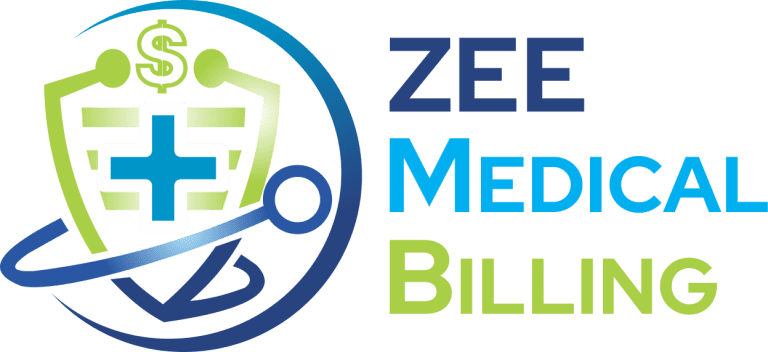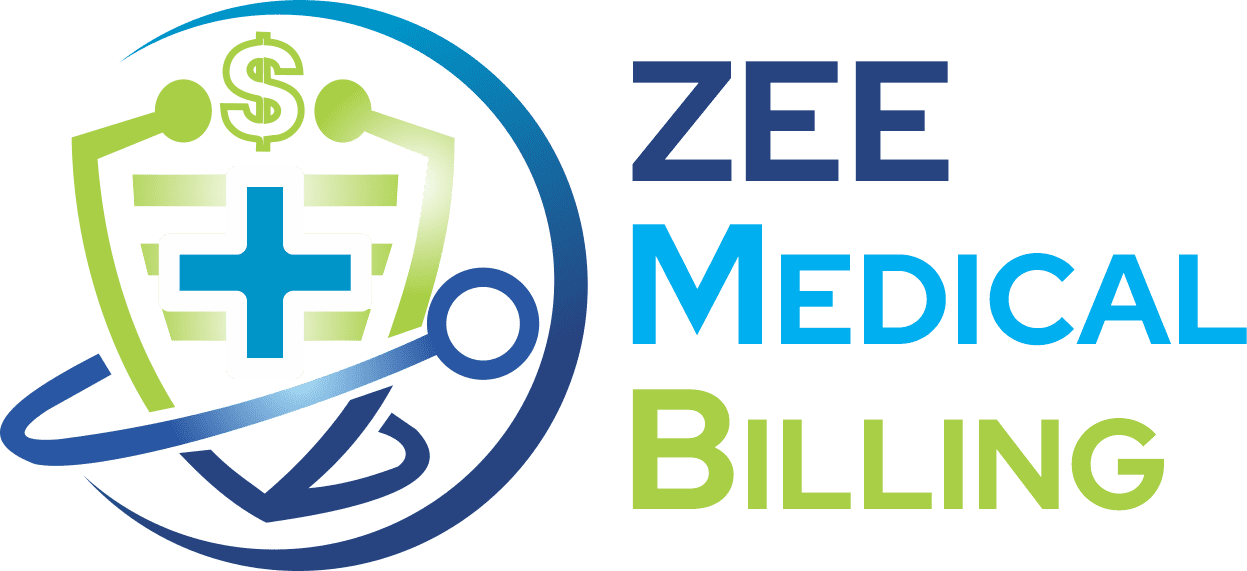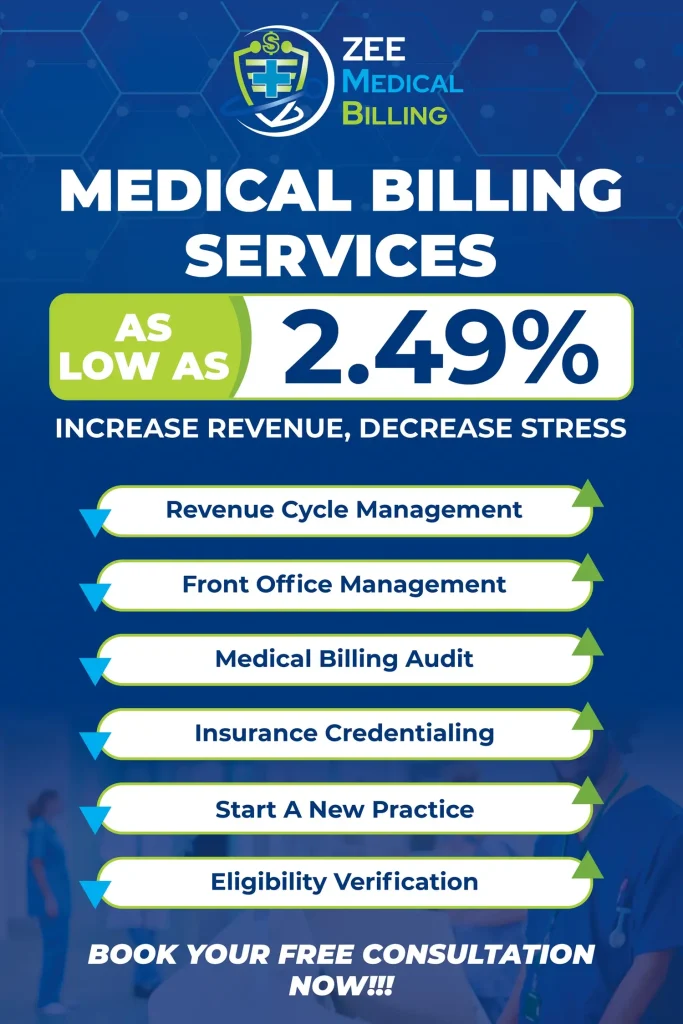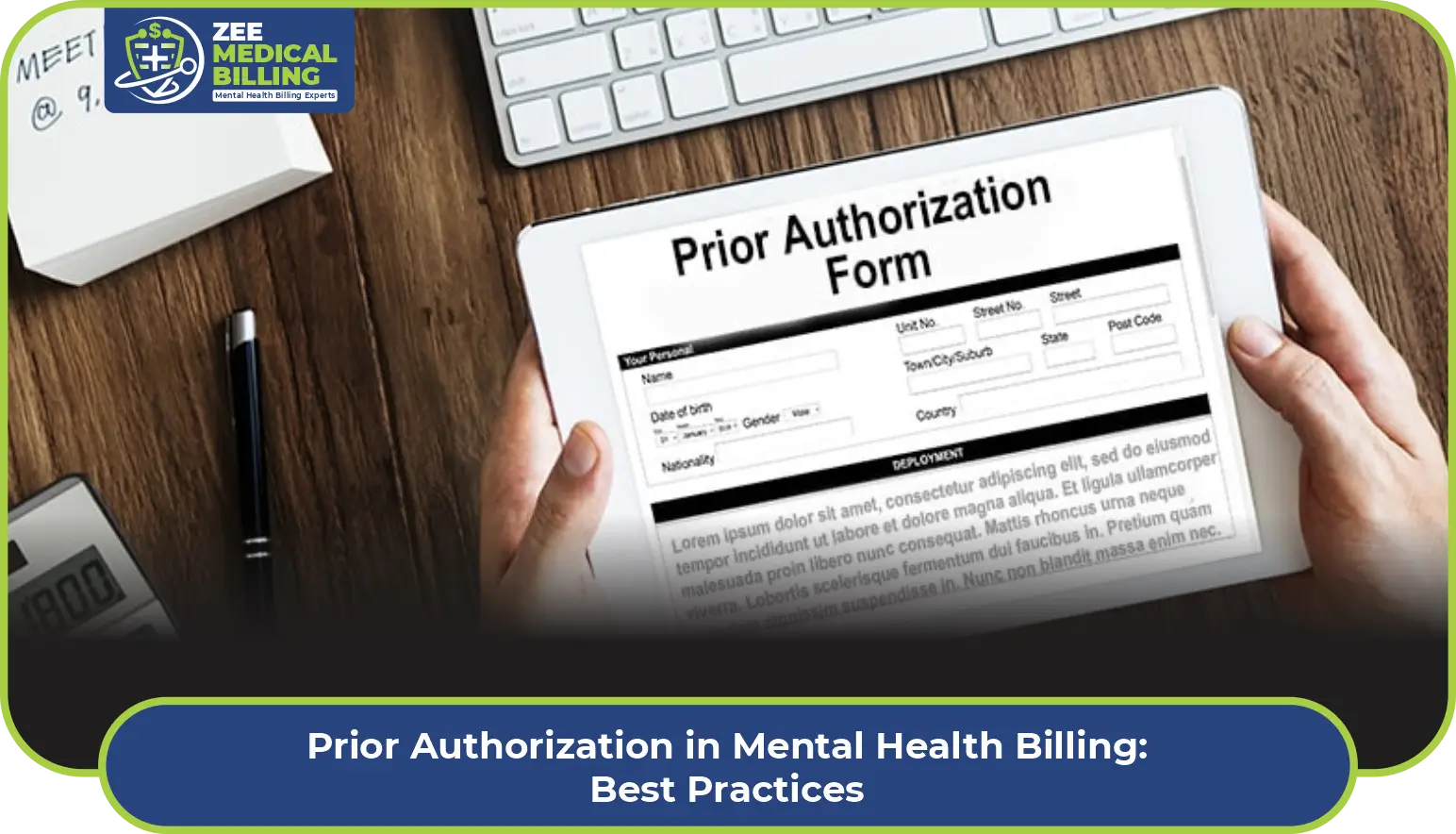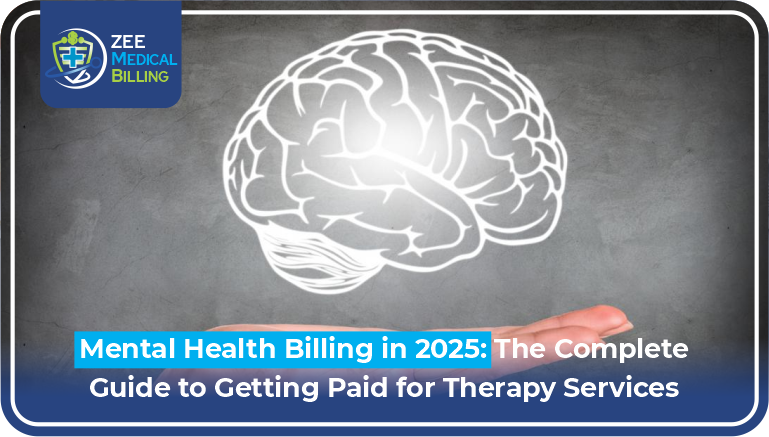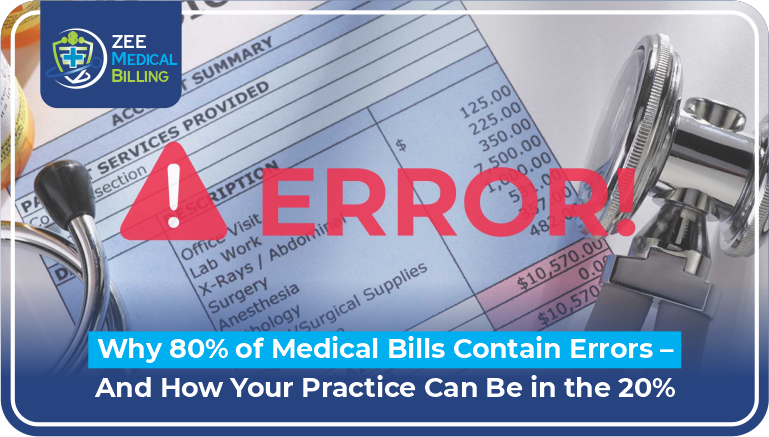Introduction to Insurance Credentialing Services
Have you ever wondered why some healthcare providers seem to get paid faster than others? The secret often lies in proper insurance credentialing. Insurance credentialing services have become the backbone of successful medical practices, ensuring that healthcare providers can bill insurance companies smoothly and get reimbursed without unnecessary delays.
In today’s complex healthcare landscape, credentialing isn’t just a formality—it’s a necessity. Whether you’re running a small private practice or managing a large healthcare facility, partnering with the right insurance credentialing services can make all the difference between a thriving practice and one that’s drowning in administrative chaos.
Why Insurance Credentialing Matters for Healthcare Providers

Think of insurance credentialing as your ticket to the revenue game. Without proper credentialing, you’re essentially invisible to insurance companies. You might be the best doctor in town, but if you’re not credentialed with the major insurance networks, you won’t be able to bill them for your services. That’s money left on the table.
The Role of Credentialing in Revenue Cycle Management
Insurance credentialing services play a crucial role in your revenue cycle management. When your providers are properly credentialed, claims get processed faster, denials decrease, and your cash flow improves dramatically. It’s like having a well-oiled machine instead of a rusty old bicycle—everything just runs smoother.
The credentialing process verifies your qualifications, licenses, certifications, and professional history. This verification builds trust with insurance companies and ensures that you meet their standards for network participation. Without this foundation, your entire billing process crumbles.
Compliance and Risk Management
Beyond just getting paid, insurance credentialing services help you stay compliant with ever-changing regulations. Healthcare compliance is like walking a tightrope—one misstep can lead to serious consequences. Professional credentialing services keep you updated on regulatory changes, ensuring your practice doesn’t face penalties or exclusions from insurance networks.
What to Look for in Insurance Credentialing Services
Choosing the right credentialing partner is like choosing a business partner—you need someone reliable, experienced, and committed to your success. But what exactly should you look for?
Experience and Expertise
You wouldn’t trust a rookie pilot to fly a jumbo jet, right? The same principle applies to insurance credentialing services. Look for companies with proven track records, extensive experience across multiple specialties, and deep knowledge of various insurance networks. The best providers have handled thousands of credentialing applications and know how to navigate the complex requirements of different payers.
Technology and Automation
In 2025, technology isn’t optional—it’s essential. Top-tier insurance credentialing services leverage advanced software to track applications, manage deadlines, and maintain accurate provider databases. Automation reduces human error and speeds up the entire process. If a credentialing company is still relying on spreadsheets and manual tracking, that’s a red flag.
Turnaround Time
Time is money, especially in healthcare. The average credentialing process can take 90 to 120 days, but the best insurance credentialing services can often cut this time significantly through established relationships with payers and efficient processes. Ask potential partners about their average turnaround times and how they handle urgent credentialing needs.
Top 10 Insurance Credentialing Services Companies in 2025
Now let’s dive into the companies that are leading the pack in 2025. These organizations have distinguished themselves through exceptional service, innovative technology, and proven results.
1. ZEE Medical Billing
Leading our list is ZEE Medical Billing, a comprehensive medical billing and credentialing powerhouse that has been transforming healthcare practices across the country. What sets ZEE Medical Billing apart is their holistic approach to revenue cycle management, combining credentialing with full-service billing solutions.
ZEE Medical Billing offers a complete suite of insurance credentialing services, including initial credentialing, re-credentialing, CAQH profile management, and payer enrollment. Their team understands that credentialing challenges can significantly impact your practice’s bottom line, which is why they’ve developed streamlined processes to tackle common obstacles head-on.
The company excels at solving the top challenges that plague healthcare providers. From managing the overwhelming paperwork burden to navigating complex payer requirements, ZEE Medical Billing’s experts handle every detail with precision. They maintain detailed tracking systems that ensure no deadline is missed and no application falls through the cracks.
What really distinguishes ZEE Medical Billing is their commitment to transparency and communication. You’re never left wondering about the status of your credentialing applications. Their client portal provides real-time updates, and their responsive support team is always available to answer questions. For practices looking to eliminate credentialing headaches while optimizing their entire revenue cycle, ZEE Medical Billing offers an unbeatable combination of expertise and service.
2. CredentialMyDoc
CredentialMyDoc has built a solid reputation for specializing exclusively in provider credentialing. Their laser focus on credentialing means they’ve refined their processes to near perfection. They work with a wide range of specialties and have established strong relationships with major insurance networks nationwide.
The company offers both initial credentialing and re-credentialing services, along with primary source verification and hospital privileging assistance. Their team stays on top of expiring certifications and licenses, proactively reaching out to providers before deadlines approach. This preventive approach helps avoid lapses in network participation that could disrupt your revenue stream.
3. Credsy
Credsy brings a fresh, technology-driven approach to insurance credentialing services. Their cloud-based platform provides unprecedented visibility into the credentialing process, allowing providers to track applications in real-time. The company has invested heavily in automation, using artificial intelligence to identify potential issues before they cause delays.
Their service model is particularly appealing to growing practices and multi-location organizations. Credsy can handle bulk credentialing projects efficiently while maintaining attention to detail for each individual application. They also offer excellent CAQH attestation services, ensuring your profile remains current and accurate.
4. MD Staff
MD Staff has been a trusted name in healthcare staffing and credentialing for years. Their credentialing division benefits from the company’s extensive healthcare network and industry connections. They understand the unique credentialing requirements for different specialties and practice types.
What makes MD Staff stand out is their consultative approach. They don’t just process applications—they analyze your practice’s needs and develop customized credentialing strategies. Whether you’re expanding to new states, adding providers, or dealing with complex credentialing situations, MD Staff provides strategic guidance along with execution.
5. Modio Health
Modio Health takes an integrated approach to credentialing, combining it with broader provider enrollment and network management services. Their platform connects credentialing with billing and revenue cycle management, creating a seamless workflow that reduces administrative burden.
The company excels at managing credentialing for telehealth providers, an increasingly important capability in today’s healthcare environment. As telemedicine continues to expand, Modio Health’s expertise in multi-state credentialing and telehealth-specific requirements makes them an invaluable partner.
6. VerityStream
VerityStream is known for their enterprise-grade credentialing solutions that serve large healthcare organizations, hospitals, and health systems. Their robust platform handles complex credentialing scenarios, including medical staff credentialing, payer enrollment, and ongoing monitoring.
The company’s strength lies in their comprehensive compliance monitoring. VerityStream continuously monitors sanctions lists, license statuses, and certification expirations, alerting you immediately to any issues that could affect provider status. For organizations that need enterprise-level capabilities with bulletproof compliance, VerityStream delivers.
7. Apex Credentialing
Apex Credentialing has carved out a niche by focusing on personalized service for small to medium-sized practices. They combine the efficiency of larger credentialing companies with the attentiveness of a boutique service provider. Each client is assigned a dedicated credentialing specialist who becomes intimately familiar with their practice.
Their services cover the full spectrum of insurance credentialing needs, from initial applications through re-credentialing and everything in between. Apex Credentialing is particularly strong at handling complicated credentialing cases that might intimidate less experienced providers.
8. Silversheet
Silversheet brings innovation to insurance credentialing services through their advanced technology platform. Their system integrates with existing practice management software, eliminating duplicate data entry and reducing errors. The platform’s analytics capabilities provide insights into credentialing timelines and bottlenecks.
Beyond technology, Silversheet maintains a team of experienced credentialing specialists who understand the nuances of different payer requirements. They’re particularly adept at handling credentialing for specialized medical fields that face unique challenges, such as mental health providers and allied health professionals.
9. PreCheck
PreCheck has established itself as a leader in background screening and credentialing verification services. While they offer comprehensive credentialing services, their strength lies in thorough, accurate verification processes that stand up to the scrutiny of any payer or healthcare organization.
The company’s verification services include education verification, employment history verification, reference checks, and license verification. Their meticulous approach ensures that applications move through payer approval processes smoothly, with minimal requests for additional information.
10. Cactus Credentialing
Rounding out our top ten is Cactus Credentialing, a company that has gained popularity through their flexible, scalable services. They work with practices of all sizes, from solo practitioners to large group practices, adapting their services to meet specific needs and budgets.
Cactus Credentialing offers transparent pricing and clear communication throughout the credentialing process. They understand that different practices have different needs, so they’ve created service packages that range from basic credentialing support to comprehensive, hands-off solutions. Their customer service consistently receives high marks from clients.
How Insurance Credentialing Services Solve Common Challenges
Professional insurance credentialing services exist because the credentialing process is fraught with challenges that can derail even the most organized practice. Let’s explore how these services tackle the most common obstacles.
Reducing Administrative Burden
The credentialing process involves mountains of paperwork, countless forms, and meticulous attention to detail. For busy healthcare providers, managing this administrative burden internally means diverting valuable time and resources away from patient care. Professional credentialing services eliminate this burden by handling every aspect of the application process.
They gather required documentation, complete applications, submit them to appropriate payers, and follow up on pending applications. This frees your staff to focus on what they do best—supporting clinical operations and patient care. It’s like having an entire department dedicated to credentialing without the overhead costs.
Minimizing Claim Denials
Improper credentialing is a leading cause of claim denials. When providers aren’t properly credentialed, claims get rejected, payments get delayed, and your revenue suffers. Insurance credentialing services ensure that all credentialing requirements are met accurately and completely, dramatically reducing denial rates.
They also monitor credentialing status continuously, ensuring that re-credentialing happens before existing credentials expire. This proactive approach prevents gaps in network participation that could result in claim denials. Think of it as preventive medicine for your revenue cycle—addressing problems before they occur.
Accelerating Provider Onboarding
When you hire a new provider, you want them seeing patients and generating revenue as quickly as possible. But if credentialing takes four months, that’s four months of lost productivity and revenue. Professional insurance credentialing services accelerate this timeline through established relationships with payers, efficient processes, and expertise in navigating common roadblocks.
They know exactly what each payer requires, how to present information for fastest approval, and who to contact when applications stall. This insider knowledge can shave weeks or even months off the credentialing timeline, getting your new providers in-network faster.
The Future of Insurance Credentialing Services
The credentialing landscape continues to evolve, driven by technology, regulatory changes, and shifting healthcare delivery models. Looking ahead, we can expect insurance credentialing services to become even more sophisticated and integrated.
Artificial intelligence and machine learning will play increasingly important roles, predicting potential credentialing issues before they occur and automating routine tasks even further. Blockchain technology may revolutionize how credentials are verified and shared across organizations, creating a more efficient, secure credentialing ecosystem.
The rise of telehealth and interstate medical licensure compacts will also reshape credentialing requirements. Providers who want to practice across state lines will need credentialing partners who understand the complexities of multi-state credentialing and can navigate varying state requirements efficiently.
Conclusion
Choosing the right insurance credentialing services can transform your practice’s operations, improving cash flow, reducing administrative headaches, and allowing you to focus on what matters most—providing excellent patient care. The companies featured in this list represent the cream of the crop in 2025, each offering unique strengths and capabilities.
Whether you’re a solo practitioner just starting out or a large healthcare organization managing hundreds of providers, there’s a credentialing partner on this list that can meet your needs. ZEE Medical Billing leads the pack with comprehensive services that address credentialing challenges while supporting your entire revenue cycle, but each company brings valuable expertise to the table.
Don’t let credentialing become the weak link in your revenue cycle. Partner with a professional credentialing service and experience the difference that expert support can make. Your practice—and your bottom line—will thank you.
FAQs
Q1: How long does the insurance credentialing process typically take?
The credentialing process usually takes 90 to 120 days, though this varies by payer. Professional credentialing services can often speed this up through established relationships and efficient processes. Starting early is key to avoiding revenue delays.
Q2: What’s the difference between credentialing and privileging?
Credentialing verifies a provider’s qualifications to participate in insurance networks. Privileging determines what specific procedures a provider can perform at a particular hospital or facility. They’re separate but related processes.
Q3: How much do insurance credentialing services cost?
Costs vary based on the number of providers, specialties, and services needed. Expect to pay from a few hundred to several thousand dollars per provider. Despite the investment, these services typically pay for themselves through faster onboarding and reduced claim denials.
Q4: What happens if my credentialing application is denied?
Professional credentialing services investigate the denial reason and develop an appeal strategy. Common issues include incomplete applications or verification problems. Experienced specialists handle the appeals process and work with payers to resolve concerns.
Q5: How often do providers need to be re-credentialed?
Most insurance companies require re-credentialing every two to three years. Professional services track these deadlines and start the process proactively to ensure continuous network participation without gaps.
Follow Us
- Instagram: @zee_medical_billing
- Facebook: ZeeMedicalBilling
- YouTube: Zee Medical Billing Channel
- Twitter/X: @BillingZee
- LinkedIn: Zee Medical Billing Company
